Part 5: Agua

Portugal and the sea have a historically symbiotic relationship, as the nation's early forays into overseas exploration and colonial expansion formed a pioneering example to the likes of England, France and Spain. Portuguese explorers were among the first to establish a western European presence in places like Japan, China, and India, and trade between these nations led to various cultural changes, such as the practice of drinking tea in Europe.
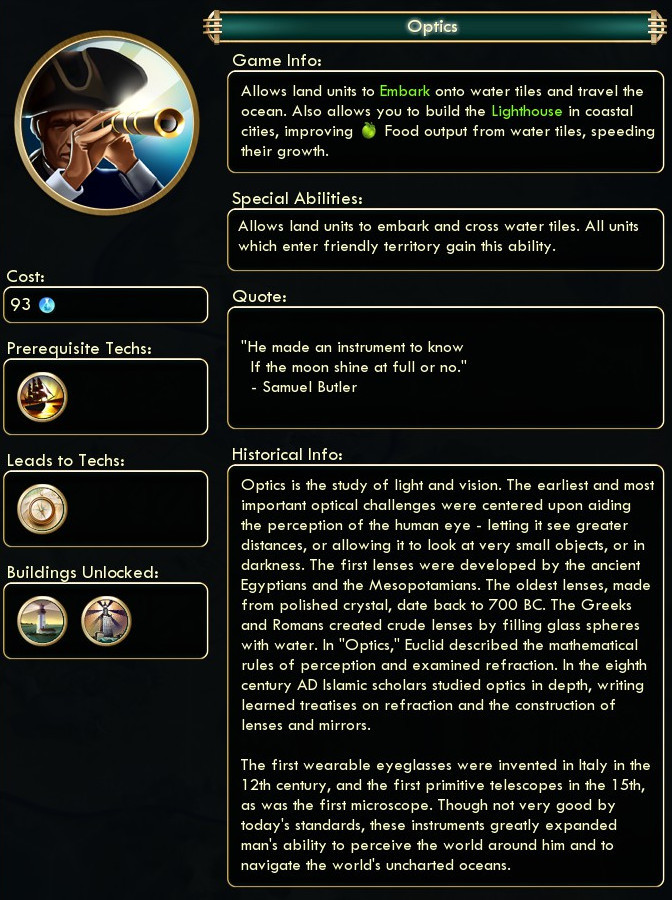
Unfortunately, various factors such as a relatively small and impoverished population base, international conflicts resulting in traders being barred from eastern Asia, and an inability to provide for colonial administration led to declines in the fortunes of the Portuguese. However, the impact of the colonial era which they had started plays a pivotal role in human history, and Portuguese language and culture can still be observed in many places around the world...
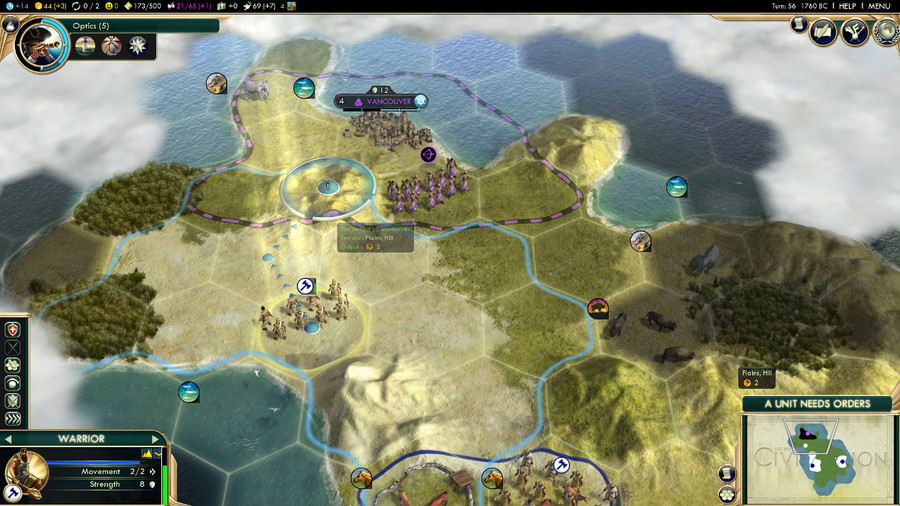
With Vancouver secure and friendly, one of our Warrior units moves up to investigate the northern part of the island a little further.
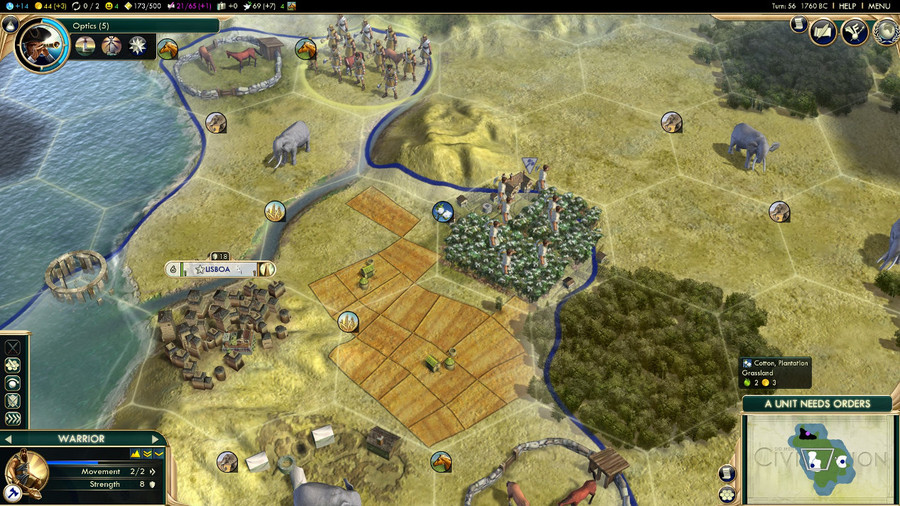
On the domestic side, the people also begin harvesting Cotton and using it to prepare ship sails and lines.
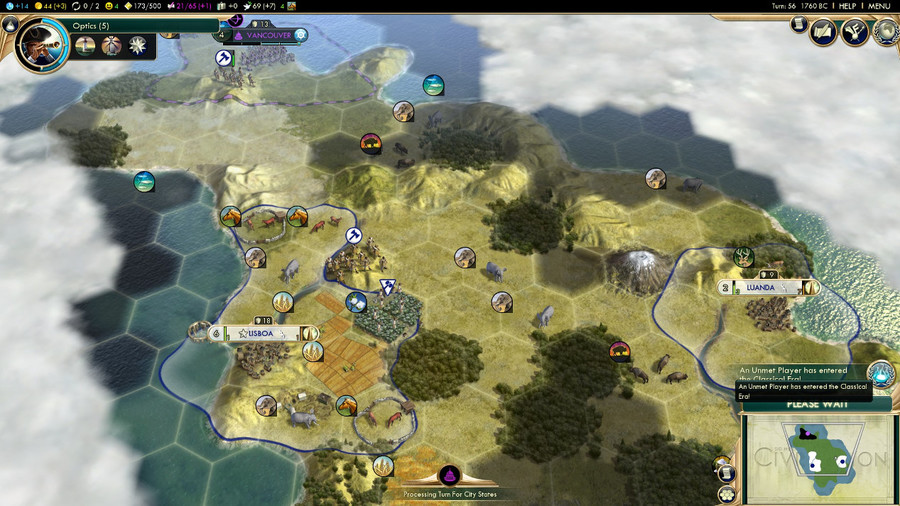
Lisboa and Luanda are both making good progress, but somewhere, we learn that another distant rival has progressed to a new era of learning and technology. This alert is mostly to provide an idea of how scientific progress is going, and how things like Wonder construction plans may be affected.
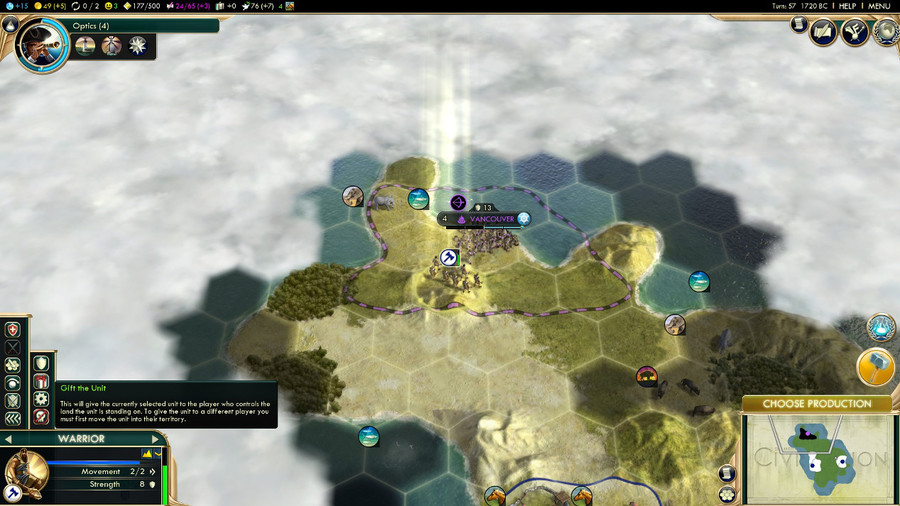
Our Warriors, however, show little concern and instead survey the lands of Vancouver from a hillside. Many of them seem impressed with the development of their neigbour, and exchange pleasantries and provisions with their foreign allies. The menu option displayed will come into play later.
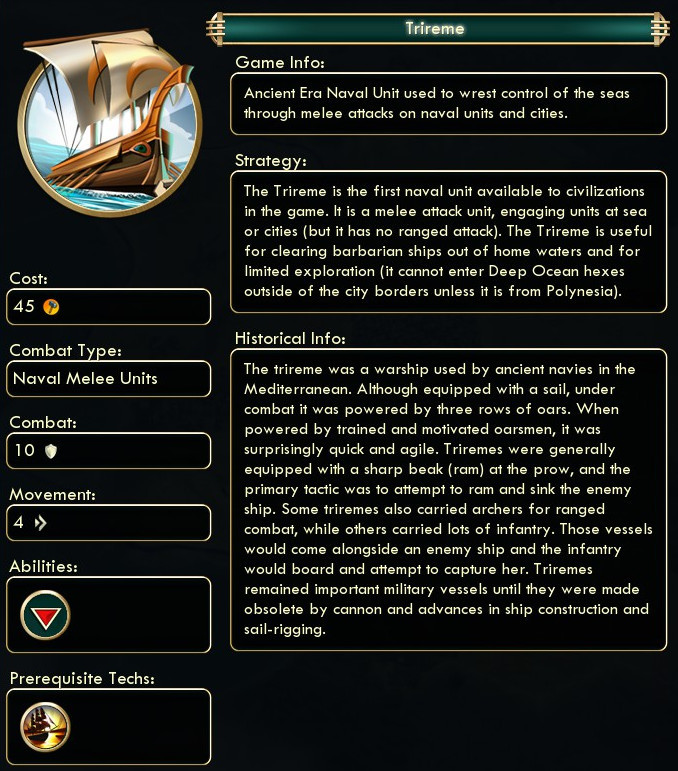
Lisboa, however, commences the construction of a three-masted and multi-oared ship in earnest, with plans to investigate the shorelines of the homeland, and hopefully uncover distant and new places to explore.
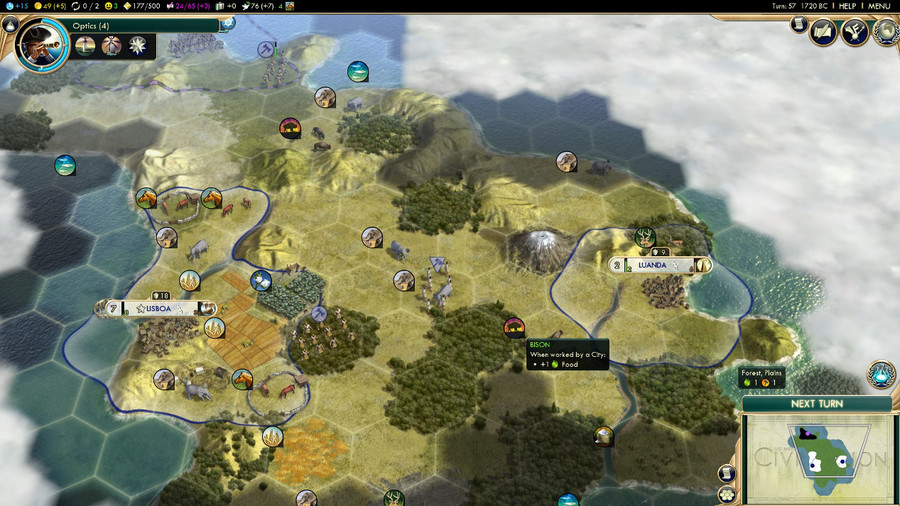
The Worker contingent, meanwhile, has been dispatched by order of the Queen to Luanda, where she has elected to grace the locals with her presence. Her missive vividly describes some manner of small, lithe, brown-furred elephants whose tusks grow atop their heads that reside in a nearby forest. She has demanded the creation of a new hunting camp, as well as a local tax assessors office to claim outstanding gold payments from the local fauna.
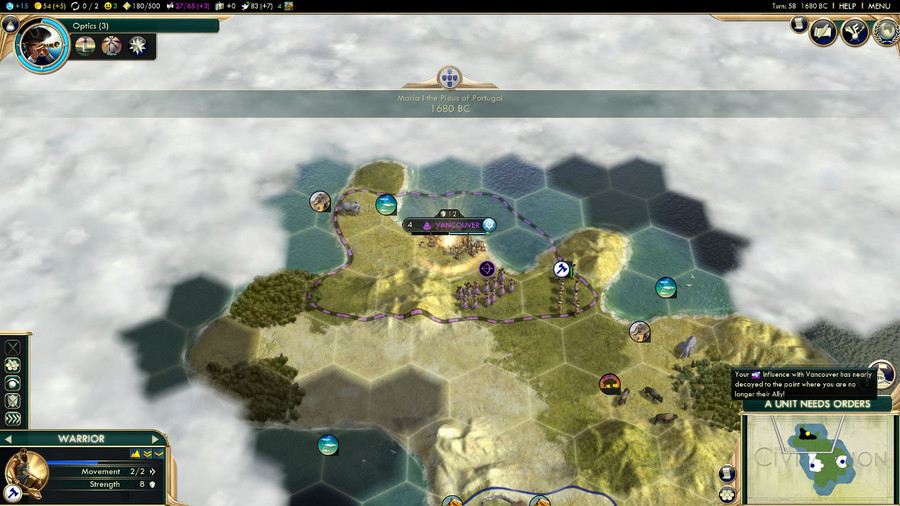
As the years pass, Vancouver becomes restless and the memories of shared victories begin to sour. Friendly rivalries between the Vancouverian Archers' brigade and their Portuguese guests degrade into sour disputes, and the next generation of Vancouver's government begins to actively question their allegiances to the Portuguese.
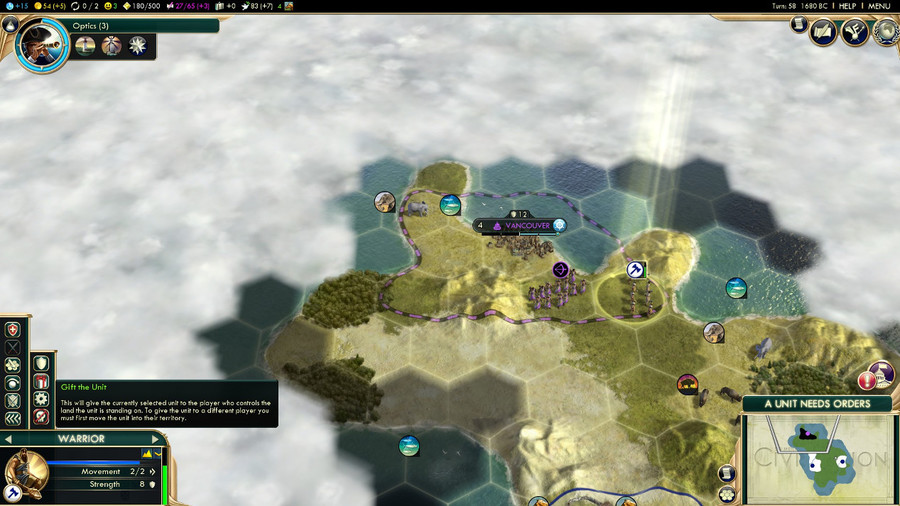
As a result, Her Majesty's government elects to take a drastic step.
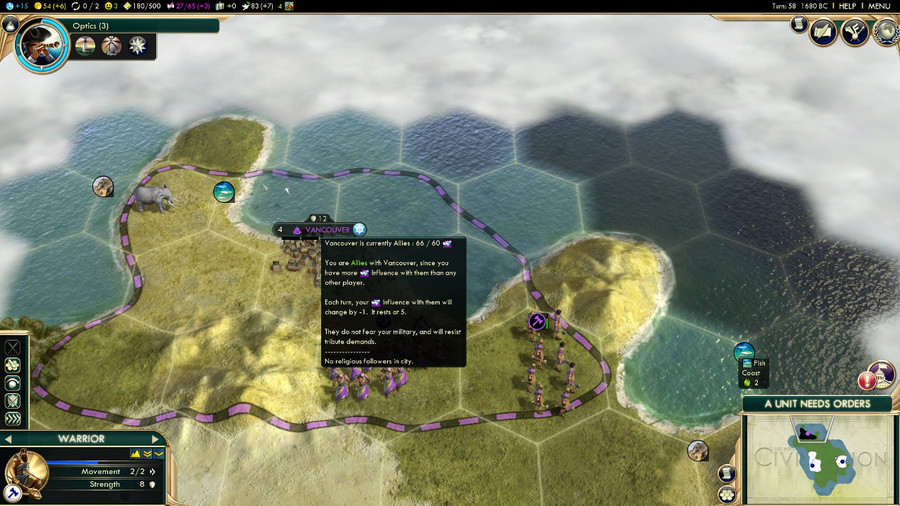
Effective immediately, command over the 2nd Warrior brigade is transferred to the government of Vancouver, and its people are awed and humbled with the gift of a highly trained and experienced group of military veterans. The subsequent boost of Influence (+5) is immediate, but fleeting, as the Vancouverian government begin to spread their propaganda campaign claiming credit for the idea.
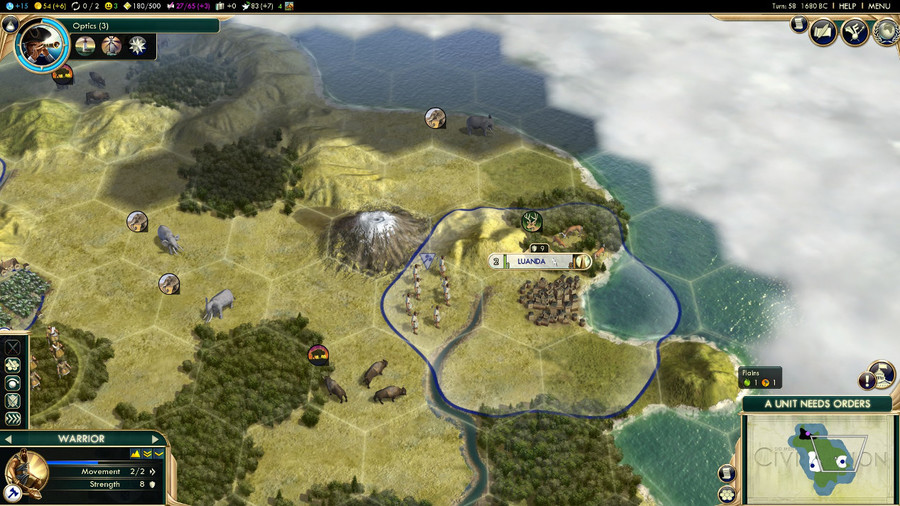
The Workers nearly arrive on site in Luanda. Unfortunately, they lack the constitution and dedication of military men, and gain no benefits from Mt. Kilimanjaro. Consequently, their trip to the woods will be impeded by rough terrain and river crossings in equal measure.
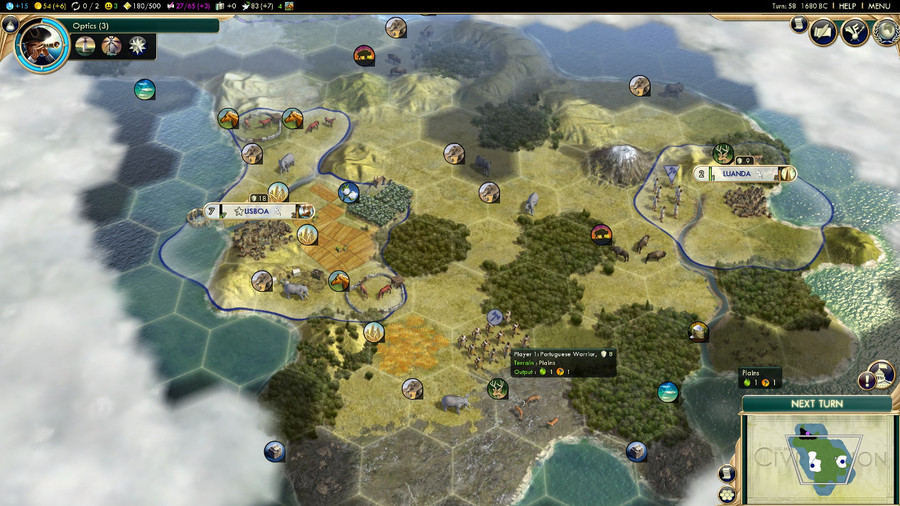
The more senior Warrior brigade, meanwhile, is entrusted with patrolling the southern and central regions, in order to verify that no more brigands will be causing trouble for the people of Portugal.
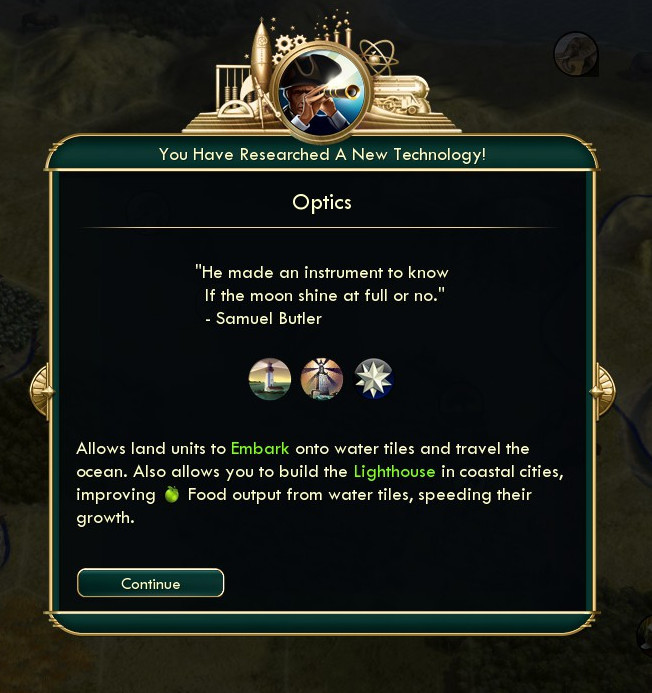
The craftsmen and -women have created a type of glassware that makes objects viewed through it seemingly larger. This type of scientific development heralds the age of a new era of technology.
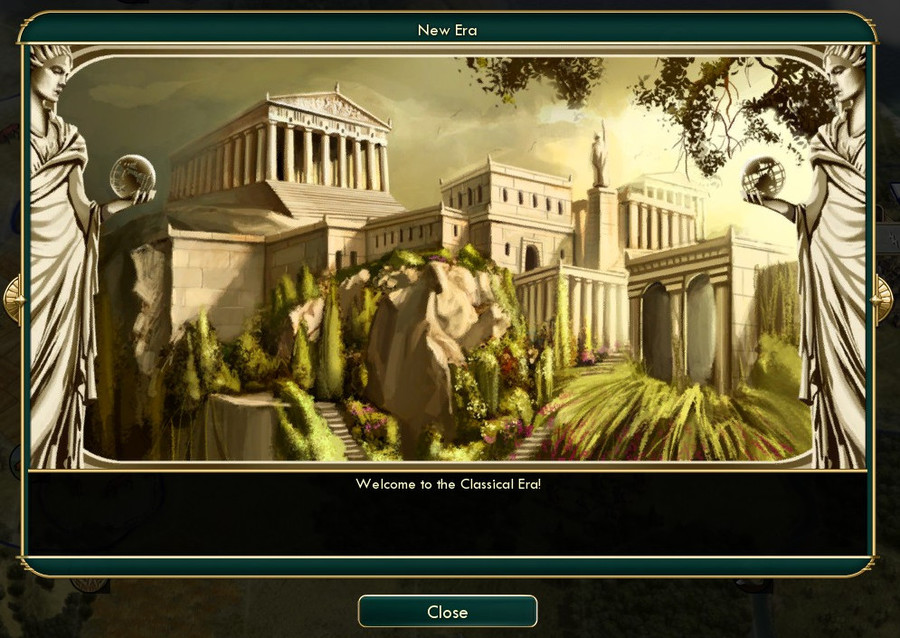
With their newly spyglass-aided eyes focused firmly on the future, the Portuguese people produce plans to take to the sea.
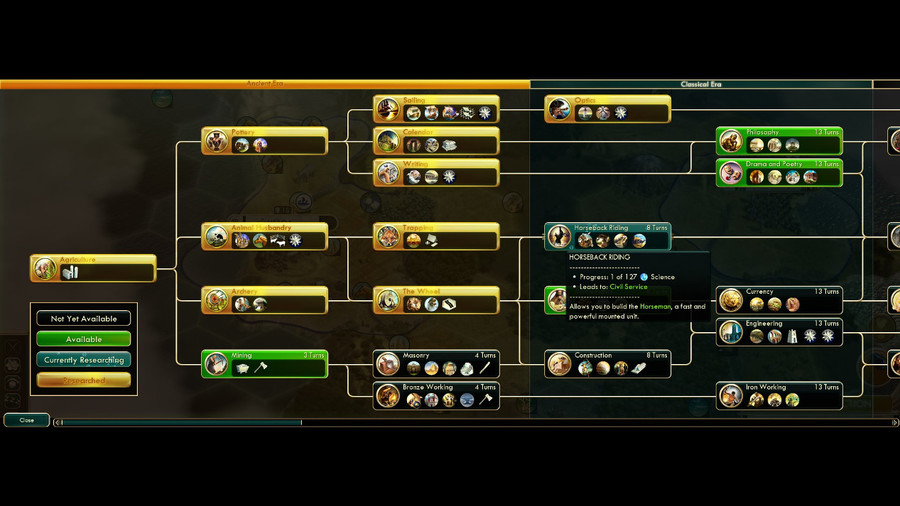
As far as future technology goes, we are taking a little step to the side in order to get the least popular poll choice (that actually got a vote, anyway) in Horseback Riding. Philosophy is a good choice of technology to be sure, but our Faith game is going well enough without Temples and we are still too early to go for the National College. The Oracle will also likely be subordinated as a Wonder choice to the Great Lighthouse, therefore it makes a little more sense to me to look towards Stables and the fantastic Production boost that they will lend to Lisboa in short order.
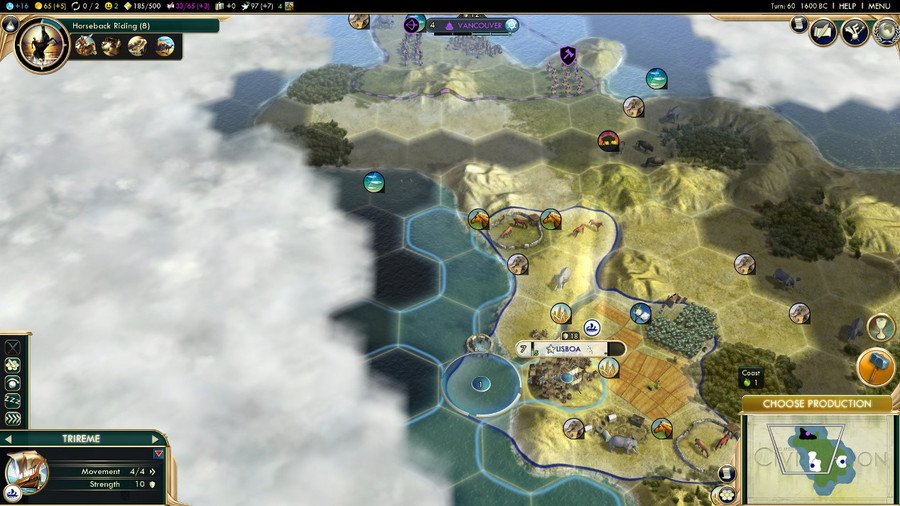
The Trireme that we see here will be our primary Coast exploration unit, and as its 4 movement spaces show, it can move into Coast tiles, but not Ocean tiles. It is not yet seaworthy enough to go much further than a few miles from the mainland, but it can still cross significant distances provided they are close to a landmass.
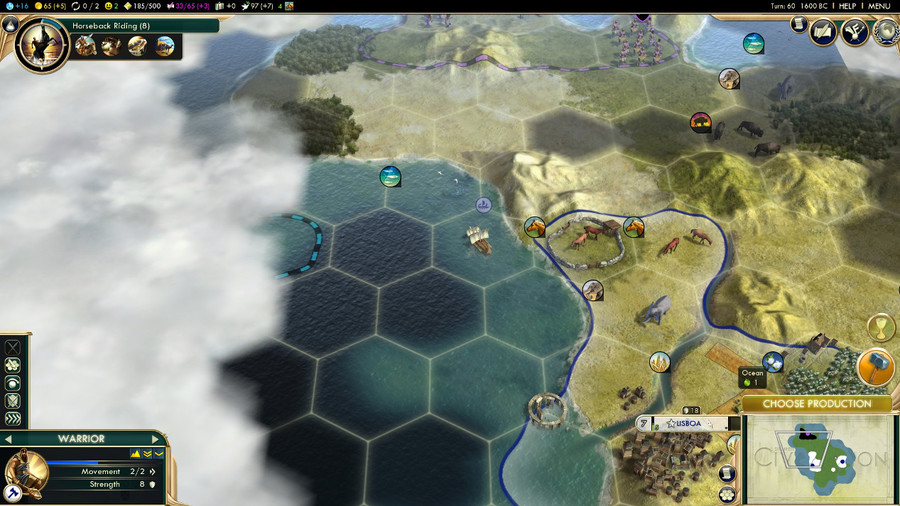
The Trireme heads north, and immediately sees something to the west that shows promise.
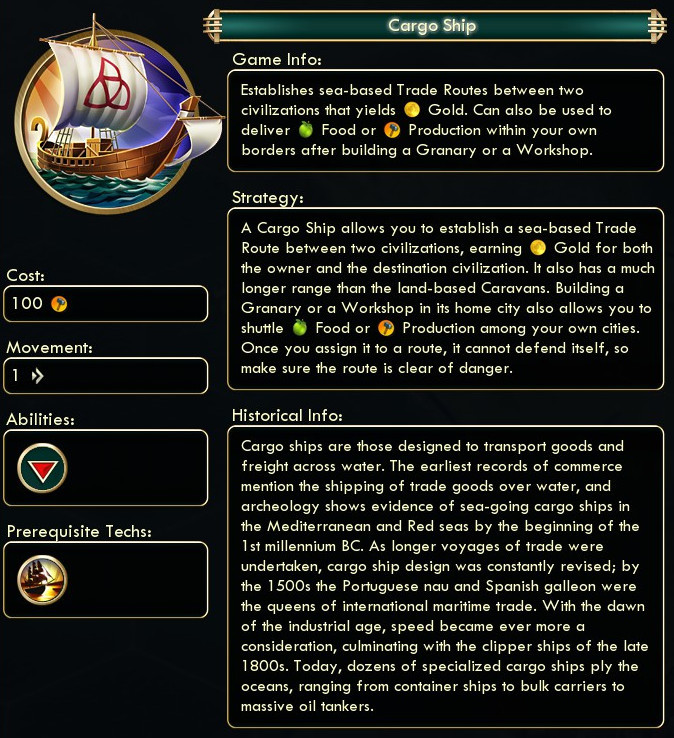
Meanwhile, the provisional government (in Dona Maria's absence) decides that a potential appeasement of the Vancouverites is in order through the development of trade between them.
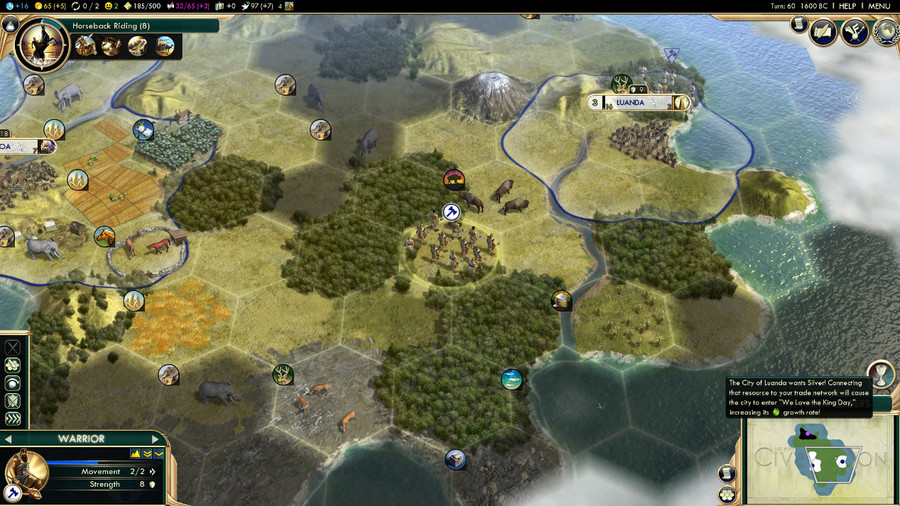
The Warriors, meanwhile, continue to patrol, though all is quiet in the South.
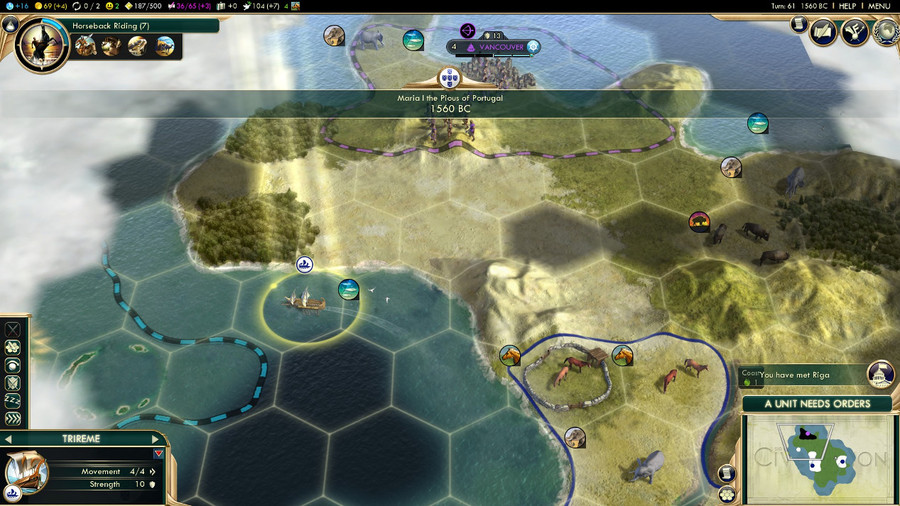
The Trireme continues its journey to the west, and sees clear signs of new lands.
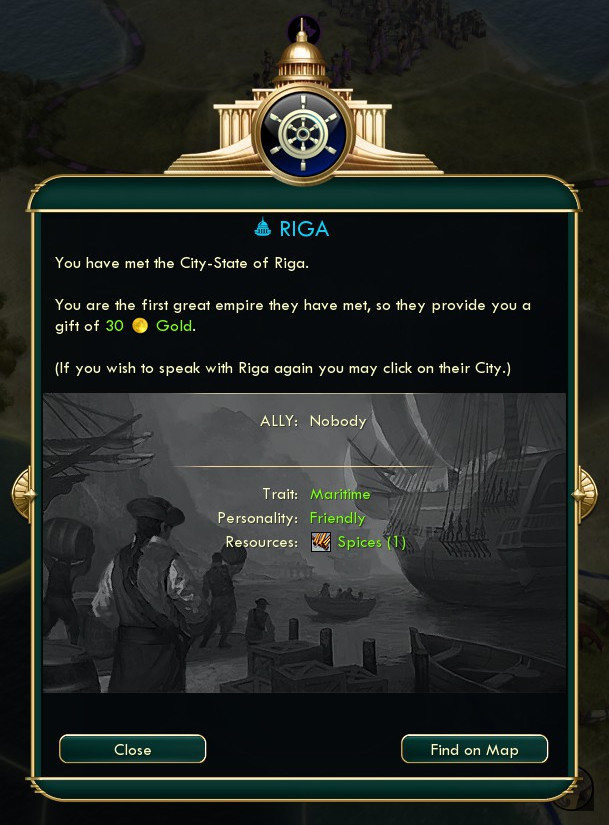
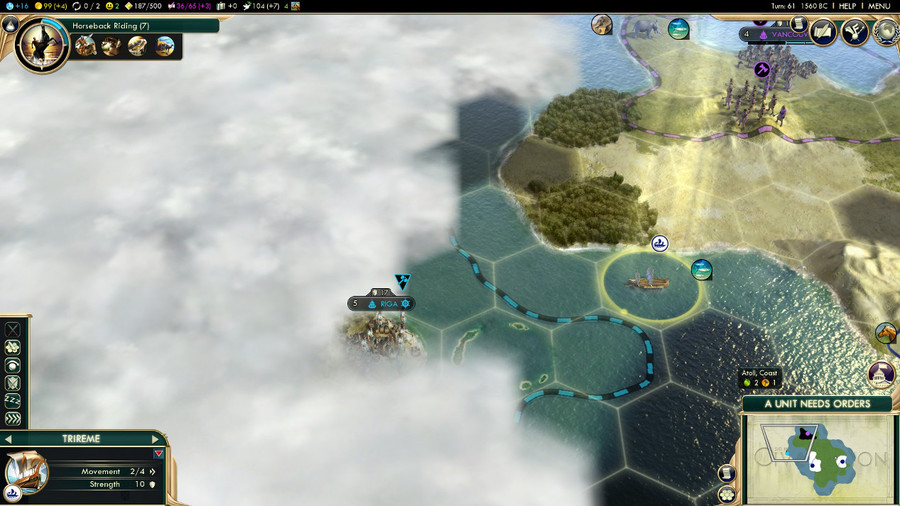
A strange contingent of island people emerge from their homes on a distant coastline and jump into small boats to welcome the Portuguese. Though flabbergasted at their unusual butchering of the local tongue, the Rigans seem quite akin to their Vancouver counterparts in their eagerness to shower their guests with gifts of gold and grain, and the sailors are quite pleased with the reception.
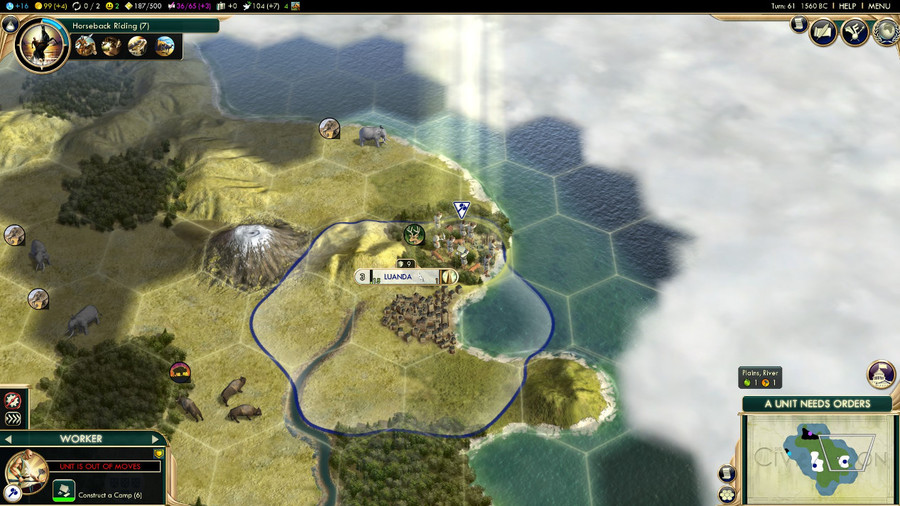
In Luanda, the Workers and Dona Maria begin their task in earnest, contributing Food and Production benefits through the harvesting of the local wildlife for their pelts, bones, and sinew. It is there they learn that the creatures are sometimes called "dia" by local children for their propensity to appear in the early daytime. However but the differences in local pronunciation of Portuguese so far from the Lisboan homeland causes the workers to mishear them, and they report back to the Queen that the creatures are known as "deer".
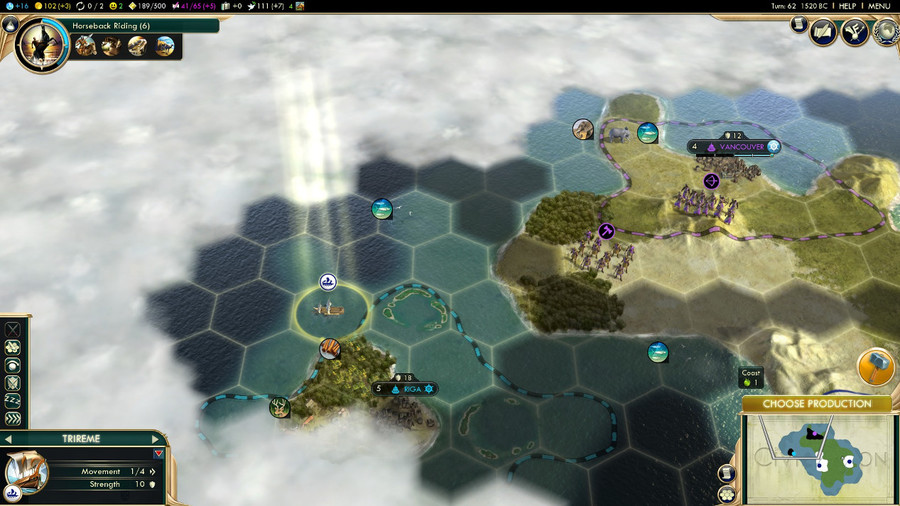
The Trireme begins to encircle Riga's borders curiously, attempting to discern whether or not they are part of an archipelago of some sort.
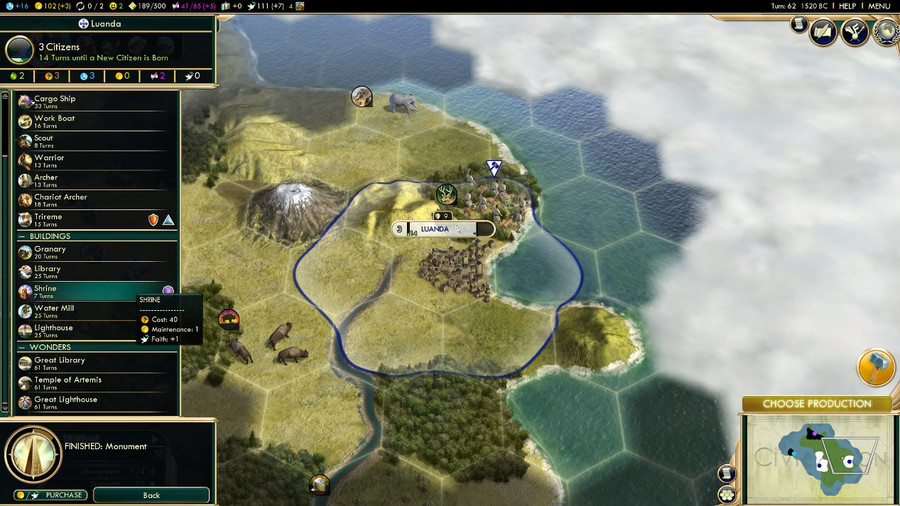
Luanda, meanwhile, is inspired by the example provided by the Royal Workers, and completes its Monument, a stone tablet depicting a stylized icon of Dona Maria displaying her royal grace and authority before a deer fawn.
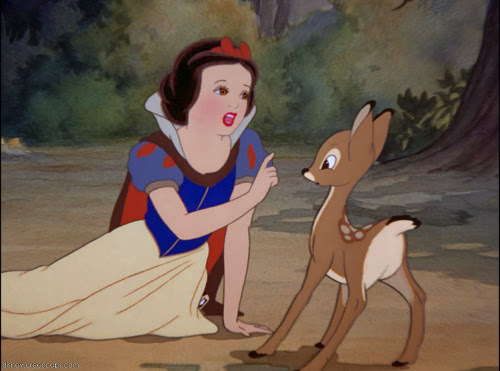
As a further show of devotion, they follow up on this project with a plan to develop a Shrine honouring the Huntress and thanking Her for the timely arrival of the Lisboans.
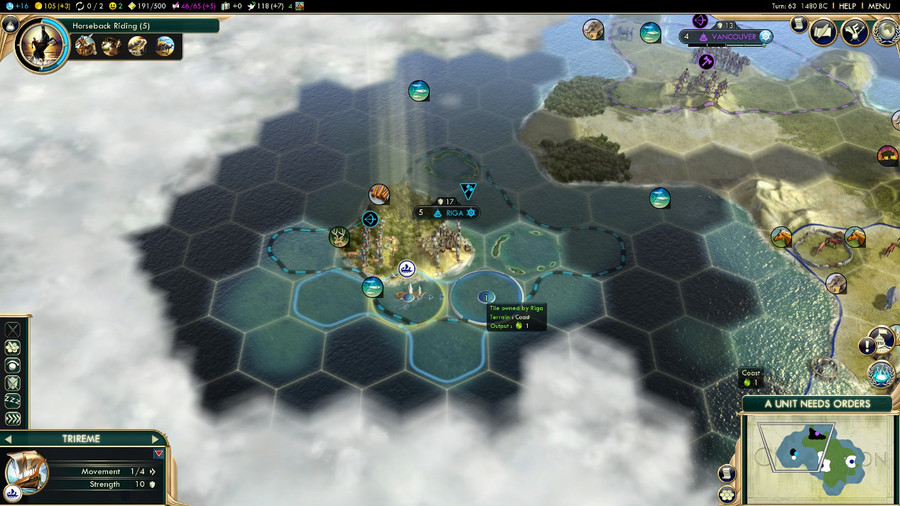
The circumnavigation of Riga is completed shortly thereafter, and the Trireme discovers no land in its immediate environs. Just as Riga is isolated from the mainland, the mainland is isolated from the greater East.
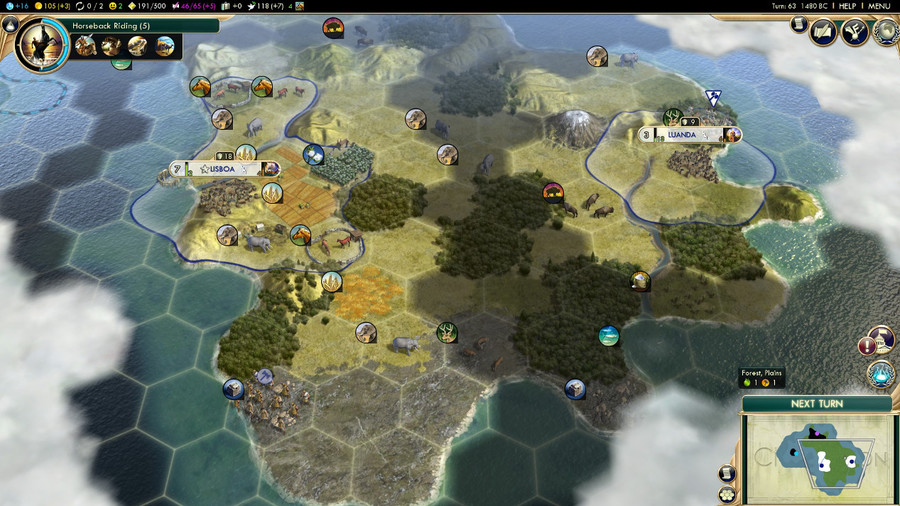
The Warrior unit begins moving further south into a bitter Tundra, and the men begin growing restless at the apparent pointlessness of their tasks.
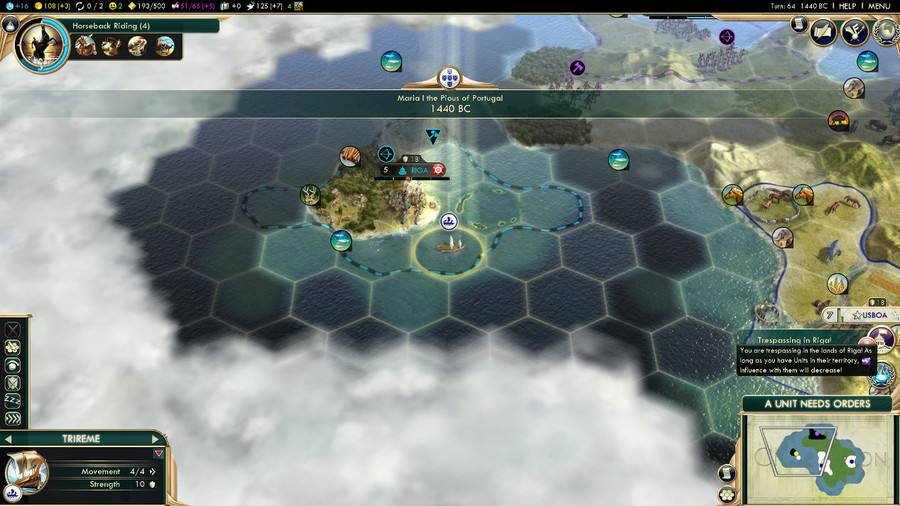
The people of Riga further complain that the continued wandering of the Trireme within their borders has constituted a violation of their property. Though they have terribly few lands to call their own, the people of Riga have demarcated sections of the seas as their own using buoyant material derived from the local trees.

Their demands for the withdrawal of the Trireme from their waters are heard by the Portuguese, who are astonished by their sudden turn from warm welcomes to near open hostility, and the Trireme pulls away, distant lands yet eluding them. Time heals all wounds, however, and the government believes that the people of Riga will forgive and forget within a generation.
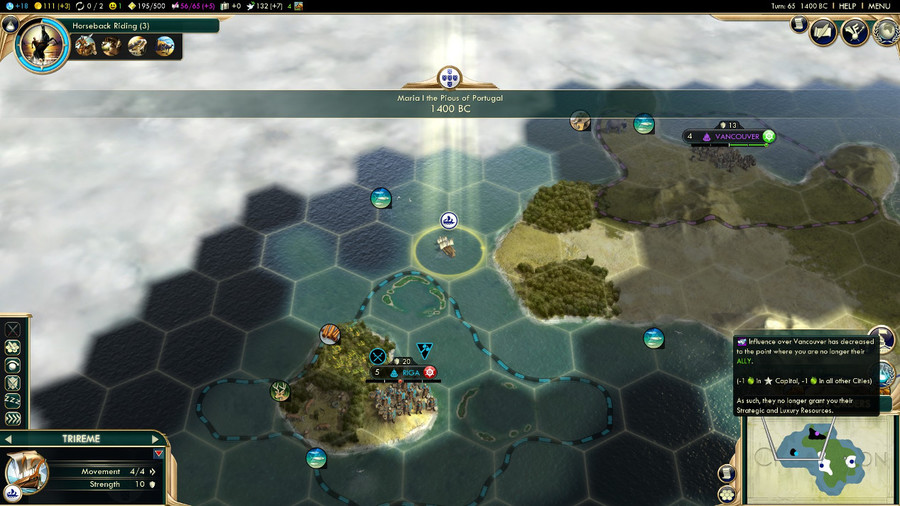
The Trireme instead seeks its fortunes northwards, and it is at this time that the Vancouver government has elected to formally sever allegiances with the Portuguese. Their tributes to the people of Lisboa and Luanda are slashed, and their military commanders no longer respond to requests for intelligence on the north coast. The people in general are friendly and open to trade and contributions of food, but any passions held for longer-term Portuguese-Vancouverian cooperation have cooled.
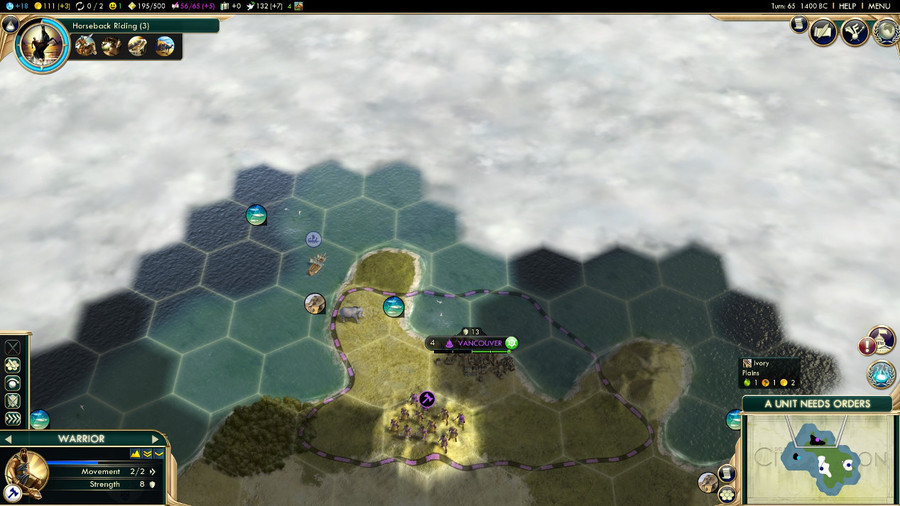
Undaunted, the Trireme pushes father north, confident that some distant land will make itself known to it soon.
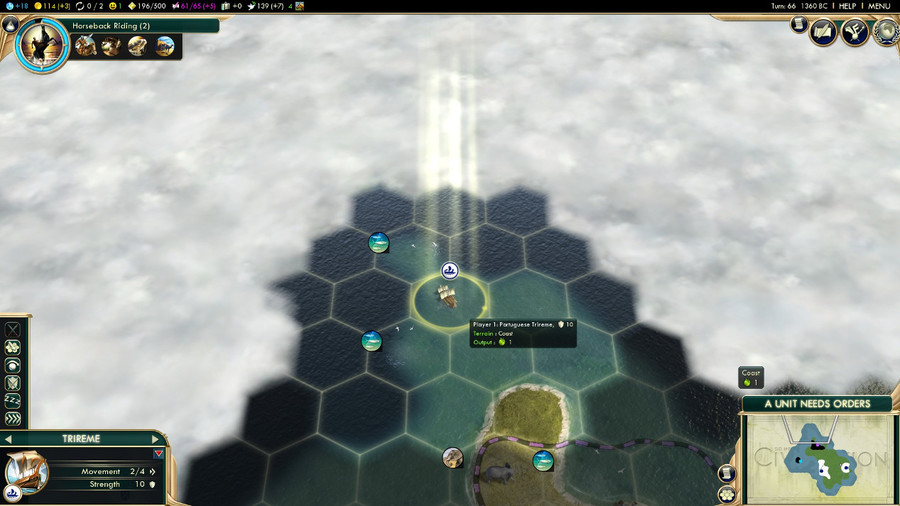
Unfortunately, it is again daunted by the cruel vastness of the sea, and no lands make themselves known to the north. The people aboard begin to despair, wondering if life in the company of reticent Vancouverites and hot-tempered Rigans is all that the world has to offer the Portuguese.
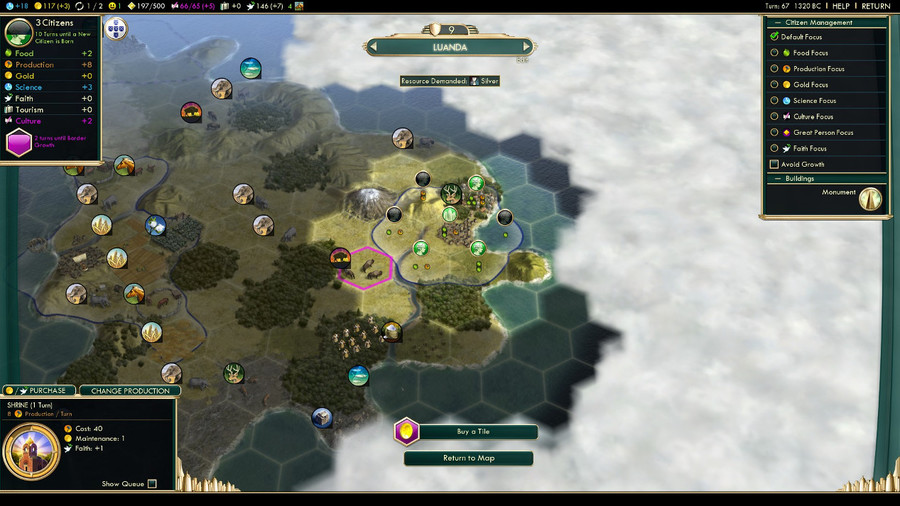
Yet, progress continues to be made in small steps. Luanda now has a proper hunting camp staffed by veteran Lisboan elephant hunters, and Dona Maria tells her people that a third type of elephant, a squat, stocky and heavily woolen kind, has also been spotted to the southwest, and she believes that the borders of the Portuguese city will soon include the grazing lands of this strange new beast, thus they must prepare to offer their horns as taxes and their pelts as sacrifices to the Huntress.
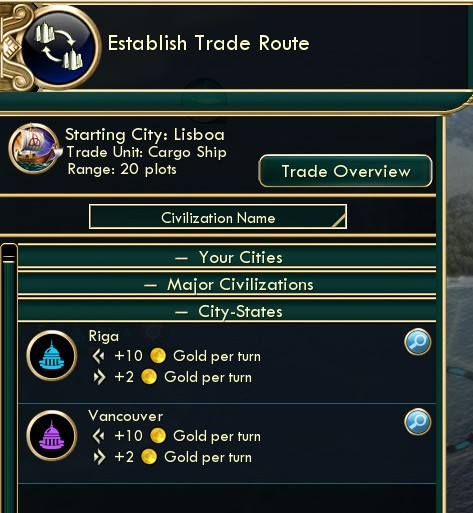
The Lisboan government, however, also sees equal parts opportunity and conundrum. They had originally built the Trade vessel to further ingratiate themselves to Vancouver, but now that they have a new neighbour they have the option of starting trade with a new people, and perhaps a better opportunity lies further from the mainland.
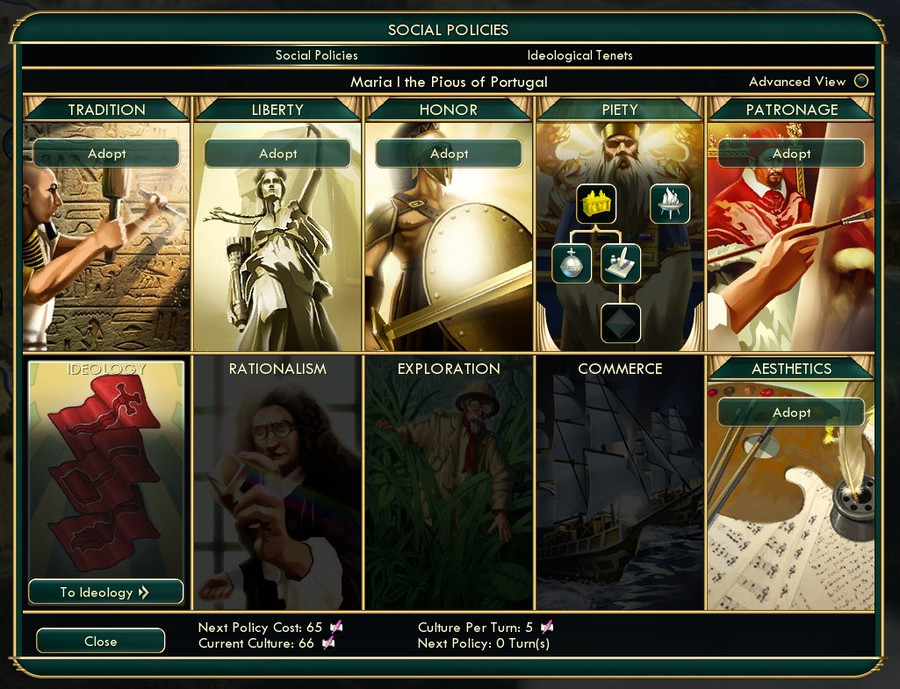
Furthermore, the social climate of Portugal as a whole has changed with scientific developments, and the people are wondering if they might not benefit from taking a more active role in the formation of allegiances and friendships with other nations, or perhaps developing their culture and art to better improve their lives in seeming isolation.
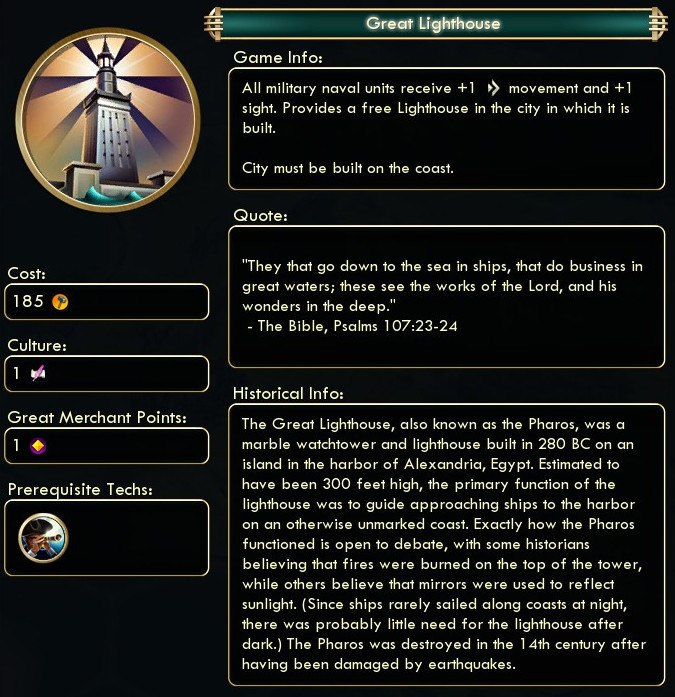
Finally, a small party of thinkers and engineers in Lisboa have begun to design plans for a sea-based tower of hithertofore unimagined size and grandeur, intending to act as a reminder of the location of home to the distant Trireme and possibly even to signal other lands far away. This project is hazardous and time consuming to be sure, but its example stands to inspire Portuguese sailors for generations to come.
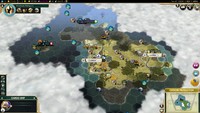
With the small island-bound Empire planning its next moves, the people go about their lives, wondering what the future may bring...
Sorry to everyone hoping for contact off this island, we only have Riga to show for it for now. If we continue to explore east and still don't come up with any new territories, then this will actually be my first playthrough of a Civilization V game on Continents where we are completely isolated by Ocean tiles. Even Archipelago games usually connect me to other Civs by coast.
However, everyone still has decisions to make concerning the direction Portugal takes henceforth:
We have a trade vessel ready to trade, but with two potential trading partners only one of them will get the benefits of our trade route. Mechanically, this is not a decision that makes a lot of difference, as the Trade Route values are the same either way and neither City-State will have an Influence gain from the decision. However, Riga has access to Spice Luxury resources, which may be worth befriending them over, though we will have an easier time with Vancouver given that we already have substantial Influence with them. Either way, I will do my utmost to make the choice more relevant through text and future interactions with the City-State in question, so let me know which of the two City-States to support with trade: Riga, or Vancouver.
We have also unlocked our next Social Policy, and because we have entered a new Era we have two new choices for potential Policy trees: Patronage and Aesthetics, and their (abridged) benefits are as follows:
Patronage deals with improving City-State relations, and unlocking the tree causes a 25% reduction in the rate at which Influence degrades from City-States, and will eventually allow us to build the Forbidden Palace Wonder. The various Policies in the tree make the benefits of City-State allegiances more enticing, and also makes them easier to get, which in turn will make the Diplomatic victory condition significantly easier to accomplish. If we want to create a diplomatic empire based on allegiances with City-States, this is the way to go.
Aesthetics is for improving the Culture game, and unlocking the tree causes us to earn Great Artists, Writers, and Musicians 25% faster, and unlocks the Uffizi Wonder much later in the game. The various bonuses in the tree will make our Culture grow faster and eventually allow us to gain more Tourism points to work towards the Cultural victory condition. If we want to improve the Culture game beyond potential competition, then we want this tree.
Alternatively, we can stick to our roots and develop another Piety policy, but the only issue I have with that option is that no Policy in that tree would help us in the short term. The gold bonus from Temples doesn't help when we don't have any, and getting alternate Religion benefits as well as cheaper Religion purchases don't help when there are no other Religions known to us or things to buy from them. My recommendation would be to leave this tree for now and branch out, but the choice should be yours more than it is mine.
We also have Production open in Lisboa again, but given the spread of choices available to us, I see that people want the Great Lighthouse, and I would like to give it to them, but I do have one alternative option I would like to present.
With one turn to go until Horseback Riding finishes, I would propose instead that we start construction of the Lighthouse but interrupt in in order to build Stables in Lisboa for extra Production points. The risk we carry in that case is that two other Civs have beaten us to the current Era and there is a small chance that they may start work on the Classical Wonder while we wait.
Thus, the choice fundamentally boils down to Great Lighthouse First or Stables First. Please let me know which of these appeals more to you all given the possibilities.
Até breve!